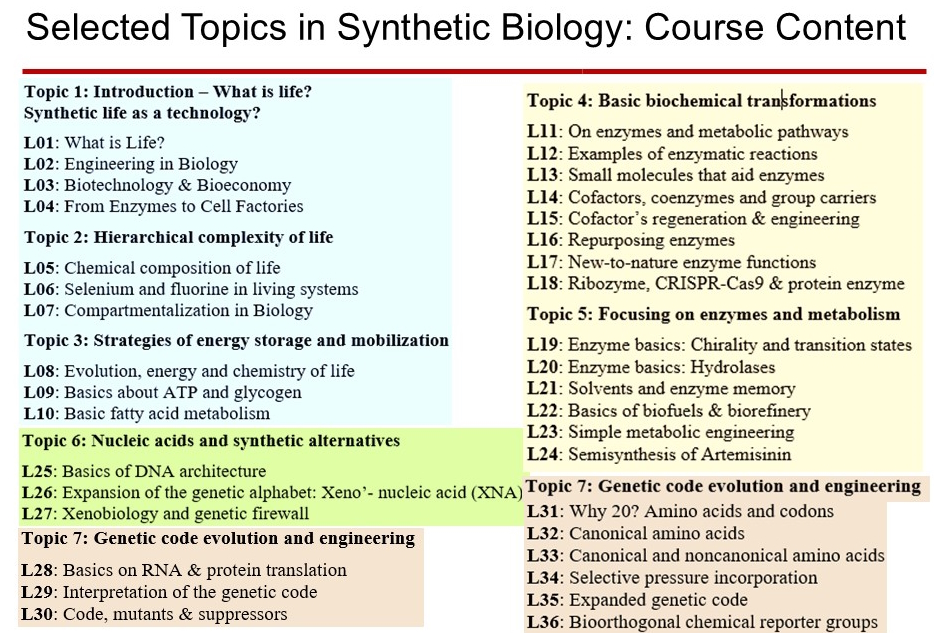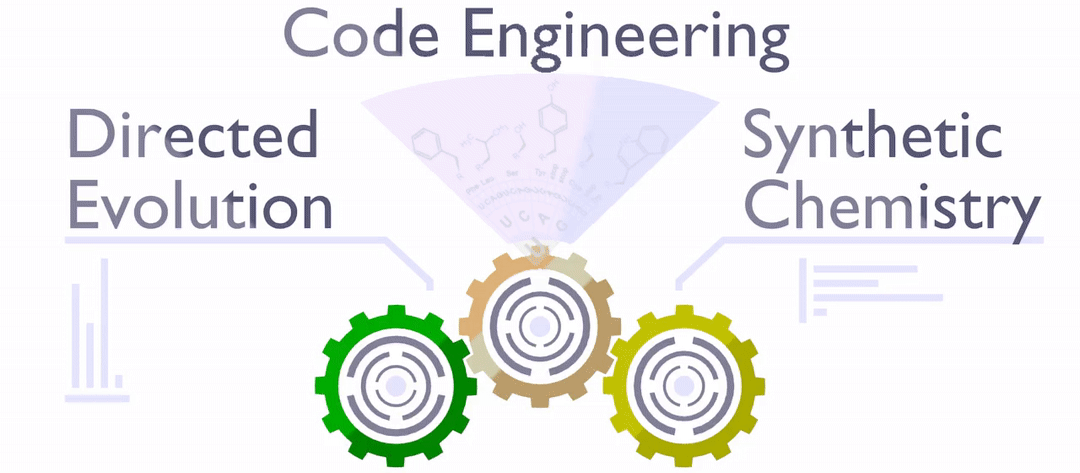Teaching
Professor Ned Budisa, Chair of the Laboratory for Chemical Synthetic Biology & Xenobiology, holds a research position with a reduced teaching load. Nonetheless, his extensive experience teaching organic and biological chemistry in Munich and Berlin has provided the expertise needed to establish synthetic chemical biology in both research and teaching on our campus.
Our lab team, led by Hamid and supported by student researchers, played a key role in establishing an Advanced Biochemistry Training Lab in the Department of Chemistry and in founding the undergraduate “Prairie”-iGEM teams (2019–present). Under Professor Budisa’s supervision, graduate students Jasmin, Michael, and Huy devoted months to launching this important initiative. For more on our iGEM activities, see the “iGEM” section of this website.
From Fall 2021 to Fall 2023, Professor Budisa taught CHEM/MBIO 2700 - Biochemistry 1, gaining valuable insights by engaging with students early in their studies. In 2020, he introduced “Selected Topics in Synthetic Biology” (CHEM4804/7400 CRN19942), an advanced course for both undergraduates and graduates. This multidisciplinary class, blending physics, chemistry, and biology, cultivates critical thinking, leadership, and collaboration skills, preparing students for future careers in basic research, chemistry, biotechnology, and bio-based industries.
Below is the 2023 course content for CHEM4804/7400 CRN19942.

To get a sense of the course’s intellectual and scholarly scope, we offer a 40-minute video of an early class session that introduces core questions and scientific issues. These include (i) What is life? (operational definition), (ii) Genetic information and the genetic code (basic terminology), (iii) Synthetic or artificial life? (historical and methodological approaches), and (iv) Synthetic Biology and iGEM (introductory concepts). Additional lectures are available to UM students via the UMLearn platform. The content evolves annually, incorporating the latest research to keep pace with advancements in the field.
Reading for more in-depth coverage of the subject
- Schmitt, F-J., Frielingsdorf, S., Friedrich, T., Budisa, N. (2021) Courses based on iGEM/BIOMOD competitions are the ideal format for research‐based learning of Xenobiology. ChemBioChem 22 (5), 818-825; doi: 10.1002/cbic.202000614
- Levin, D.B., Budisa, N. (2023) Synthetic biology encompasses metagenomics, ecosystems, and biodiversity sustainability within its scope. Front. Synth. Biol. 1:1255472; doi: 10.3389/fsybi.2023.1255472
- Schmitt, F.J., Golüke, M., Budisa, N. (2024) Bridging the gap: enhancing science communication in synthetic biology with specific teaching modules, school laboratories, performance and theater. Front. Synth. Biol. 2: 1337860; doi: 10.3389/fsybi.2024.1337860


